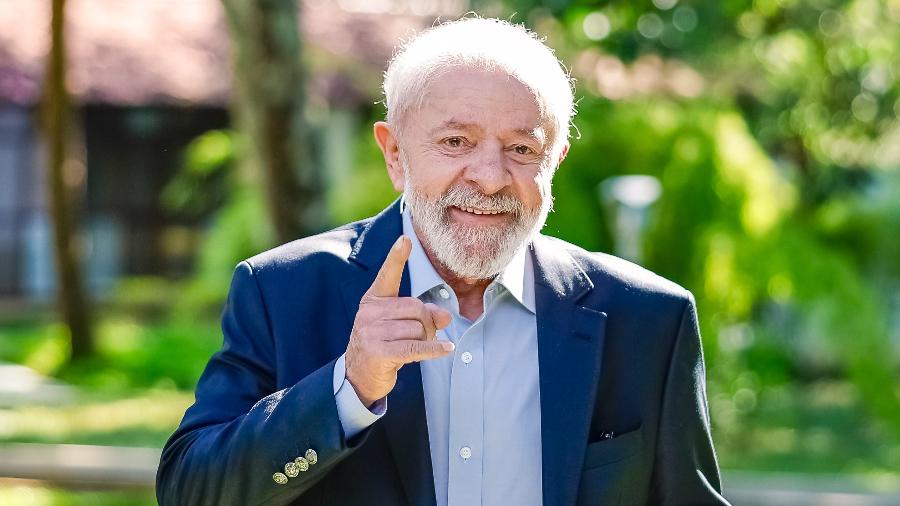
President Luiz Inacio Lula da Silva landed this Thursday, 3, in Buenos Aires to participate in the 66th Mercosur State Chefs Summit. At the time, Brazil will assume from Argentina the presidential presidency of the bloc, which will be exercised until the first half of 2026. The information was released by the agency Gov.
On the eve of the trip, Ambassador Gisela Padovan, secretary of Latin America and the Caribbean of the Ministry of Foreign Affairs, stated that Mercosur occupies “strategic role in Brazilian foreign policy”. According to her, “I do not need to emphasize the importance that Brazil has attributed to Mercosur in our main objective to promote regional integration, which is a constitutional, historical and current objective of President Lula and Brazilian diplomacy”.
Negotiation with the European Union will be a priority
The main immediate challenge of the Brazilian presidency will be to complete the association agreement between Mercosur and the European Union, whose negotiations have been dragging on for over twenty years. Padovan pointed out that “we expect to sign even the agreement with the European Union, which is finalized, undergoing translations to 27 languages, and has to go through the European instances.” According to her, President Lula has acted directly on the negotiations, including with the French President Emmanuel Macron.
The ambassador stressed that the block acts with greater strength when negotiating jointly. “Alone, negotiations with large blocks would be more fragile. Together we are stronger to put ourselves globally,” he said.
Tariff and plan review for a “mercosur green”
Another point foreseen in the Brazilian agenda is the revision of the common external tariff (TEC) and the integration of the automotive and sugarcane sectors with the block customs regime. It is also planned to present a project of “Mercosur Verde”, focusing on sustainable business practices. According to Padovan, the goal is to “promote cooperation so that not only our trade is more sustainable, but also that we show our green credentials to the world: we have a renewable energy matrix and our agriculture is sustainable.”
Focem 2 of the Apoitar Works of Infrastruct
To face inequalities between the bloc countries, the Brazilian government intends to launch the second phase of the fund for the structural convergence of Mercosur (FOCEM 2). Padovan explained that the previous version mobilized approximately $ 1 billion in initiatives such as the coastal in Paraguay. “We walk for her and it is a pride to see that Mercosur is able to help in such fundamental works,” he said. Brazil has eight new projects in the financing line.
Social institutions on the agenda
The government also wants to expand the role of the Institute of Public Policy on Human Rights (IPPDH) and the Mercosur Social Institute (ISM). “We would like to see these more vigorous institutes. We will work to help them fulfill their very important function of preparing technical bodies, studying, spreading data and elements and effectively promoting fundamental topics, such as human rights and the theme of justice and social care,” said the ambassador.
Commercial growth and new regional conjuncture
Official data indicate that trade between the bloc countries added US $ 17.5 billion between January and May 2025. The Brazilian commercial balance was US $ 3 billion in the period. Among the most marketed products are vehicles, wheat, electricity and iron ore.
In 2024, Bolivia was formally incorporated as a full member of Mercosur, which expanded the block market to more than 295 million inhabitants.
International projection and regional diplomacy
The summit will also be room for the promotion of the Brazilian regional integration strategy as a path to sustainable development. The federal government considers Mercosur a central part of a foreign policy based on dialogue, social justice and ecological transition. This view is linked to Brazil’s position as a diplomatic actor in a fragmented global scenario.
With the rotating presidency, Brazil will be able to lead the debate about the future of the bloc, focusing on the expansion of economic and social cooperation. The agenda also foresees the appreciation of associated countries, such as Panama, and the creation of small and medium -sized support mechanisms, with attention to inclusion policies.
Mercosur’s history and structure
Mercosur was founded in 1991 and brings together Argentina, Brazil, Paraguay, Uruguay and Bolivia, as well as associated countries. The block has already approved more than 3,000 standards that cover topics such as commerce, health, social security and energy. The agreements guarantee free movement of persons, recognition of social security rights and unification of sanitary standards. Mercosur also operates in the management of strategic natural resources, such as the Guarani Aquifer.
The Brazilian presidency will be challenged to consolidate the bloc as a platform for economic and institutional integration. According to Itamaraty, the goal is to align competitiveness, social justice and sustainability, reinforcing the role of Brazil in the regional articulation.
Source: https://www.ocafezinho.com/2025/07/02/lula-assume-lideranca-do-mercosul-com-foco-em-acordo-com-ue-comercio-sustentavel-e-nova-fase-de-integracao-regional/

